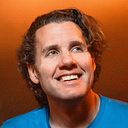Member-only story
How to Get Your Attention Span Back
Mark Manson’s ‘Attention Diet’ is a step-by-step program for reclaiming your focus
In the time it took me to outline this article, I checked Twitter three times and my inbox twice. I responded to four emails. I checked Slack once and sent two texts. I went down a rabbit hole of YouTube videos. Every few minutes, I refreshed Amazon to see if the ranking of my books had changed.
This should have been 20 minutes of work, tops. Yet the cost of these compulsive interruptions goes way beyond the added amount of time that it took me to finish the damn thing. These distractions interrupted my train of thought, likely reducing the quality of my writing and necessitating more edits and revisions. They created anxiety as I spent much of my distracted time anxious about the fact that I wasn’t working and my working time anxious that I was missing out on text conversations, email threads, or news updates. They made the process of writing less enjoyable and more taxing.
These types of distractions aren’t just unproductive, they’re anti-productive. They create more work than they replace.
Chances are you go through this do-si-do yourself on the regular. For me, it’s only gotten worse as time has gone on — which is strange because you’d assume that my attention span…

